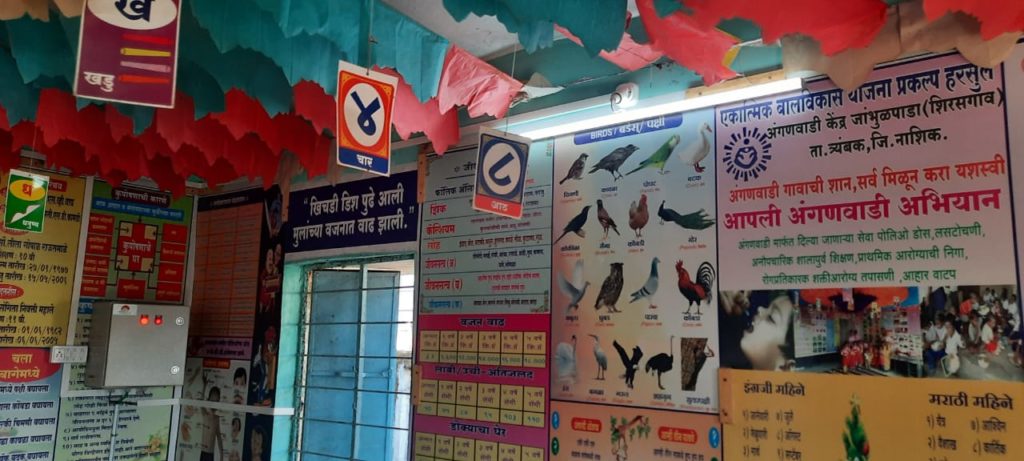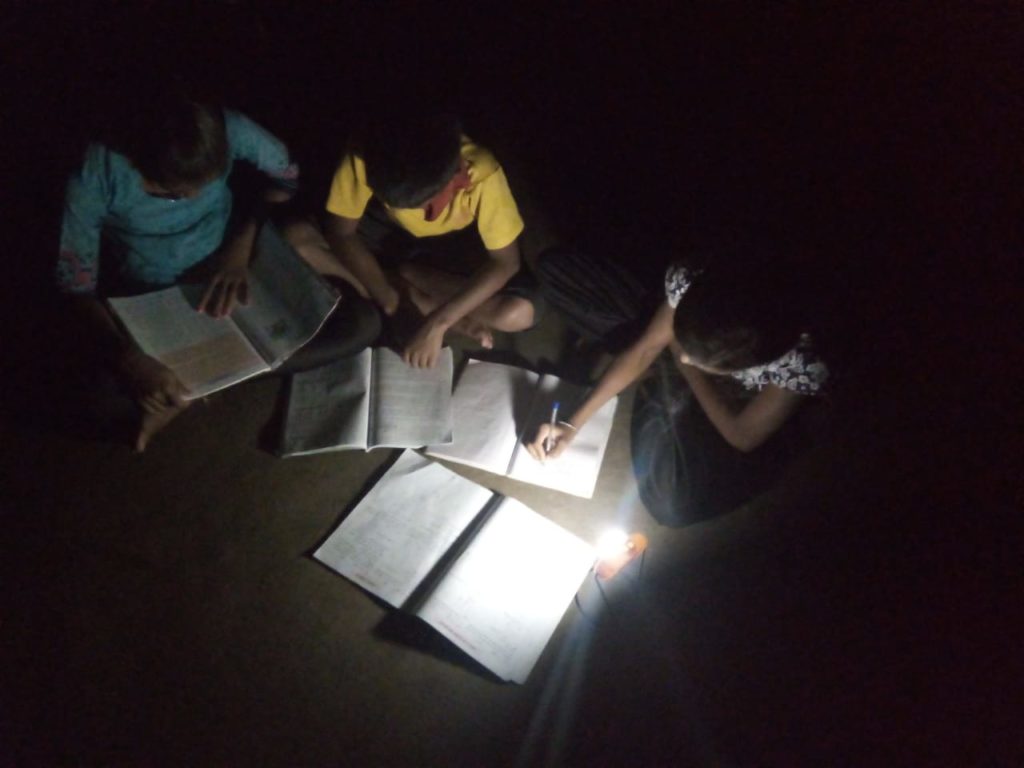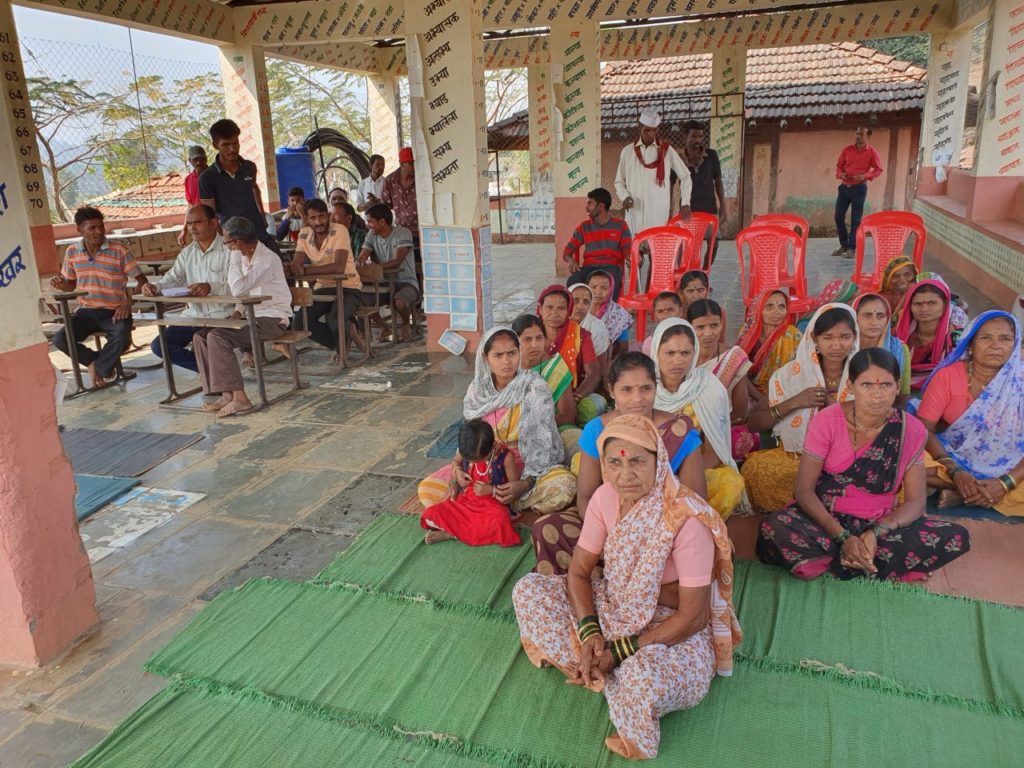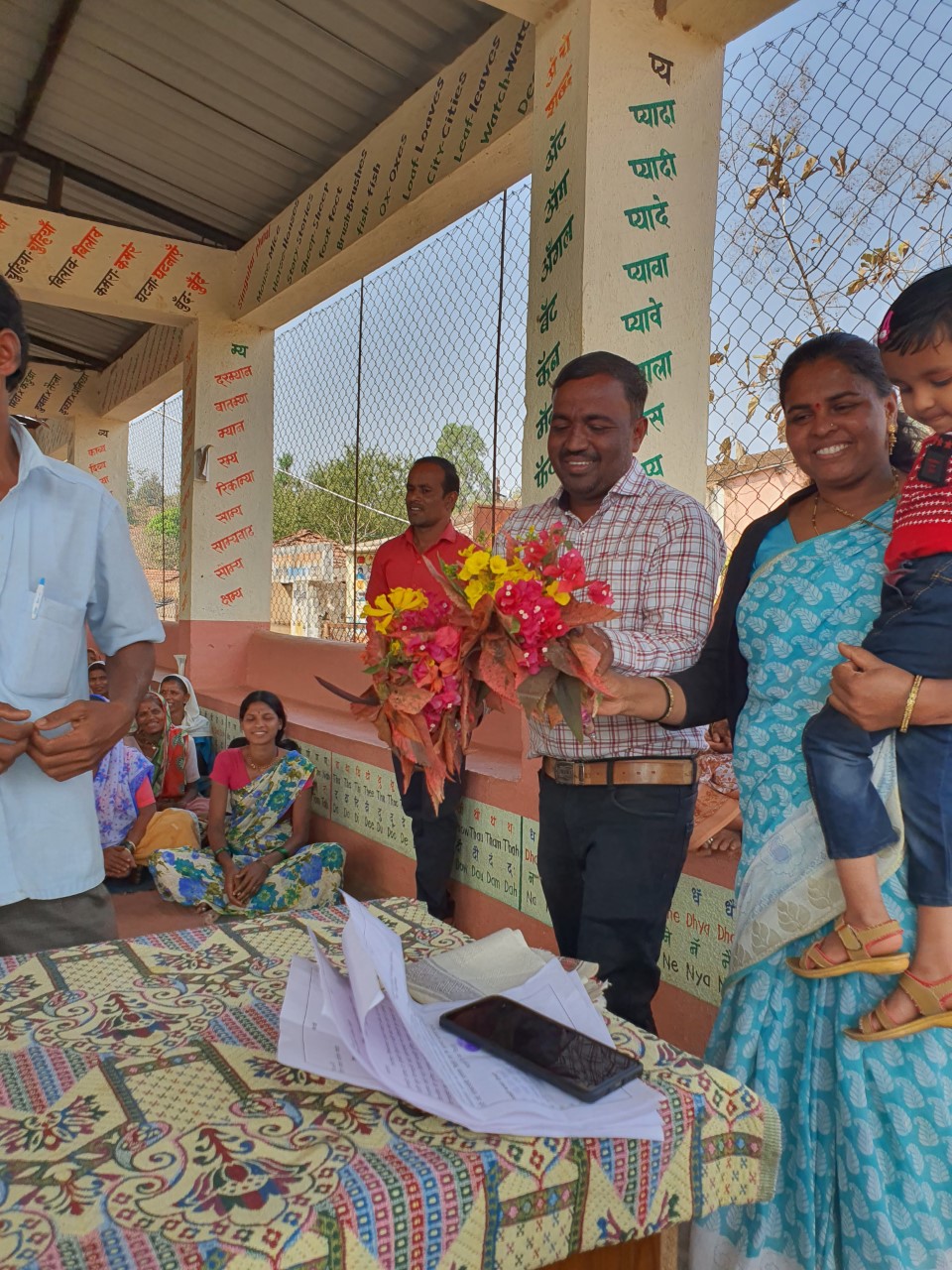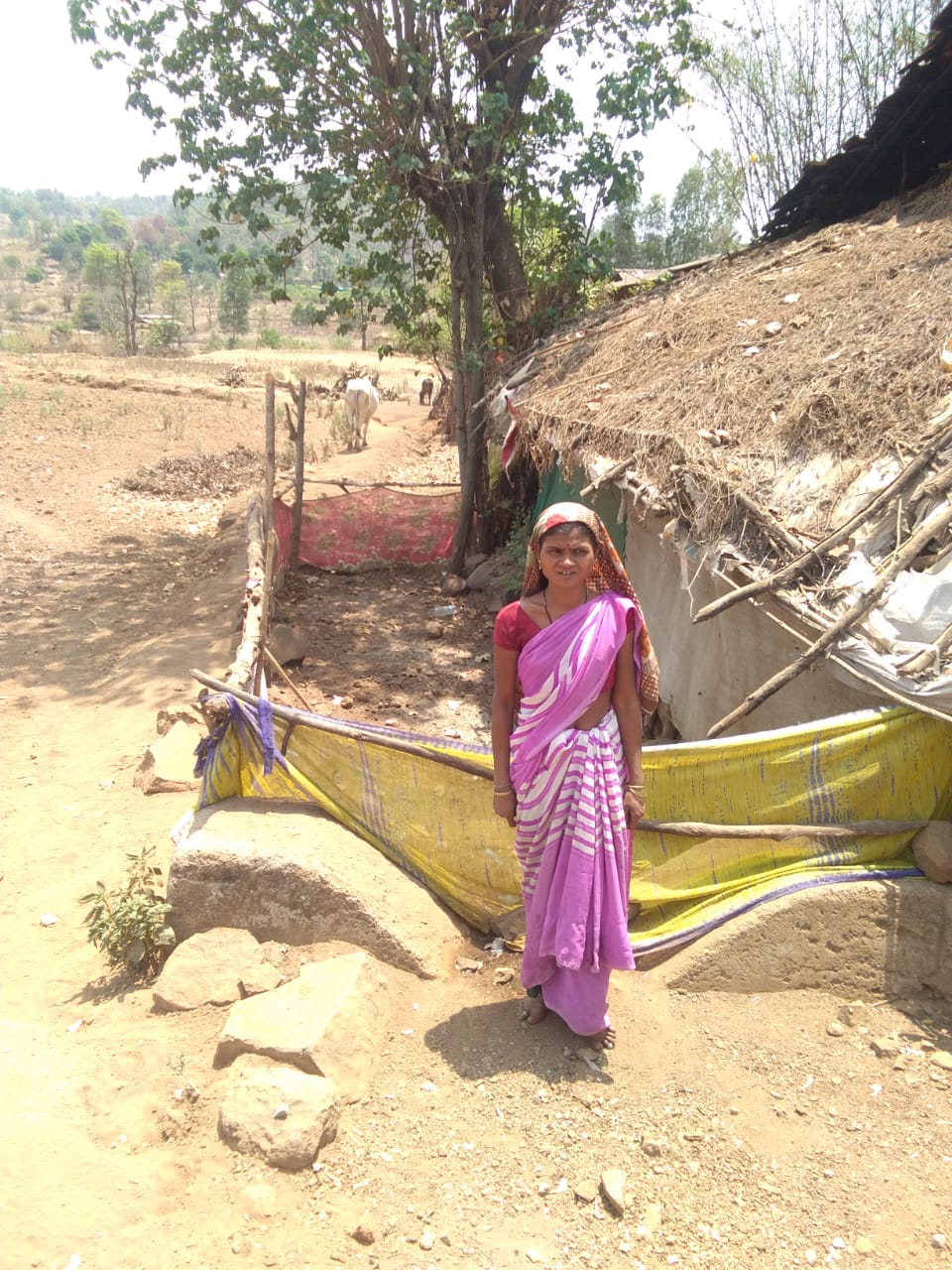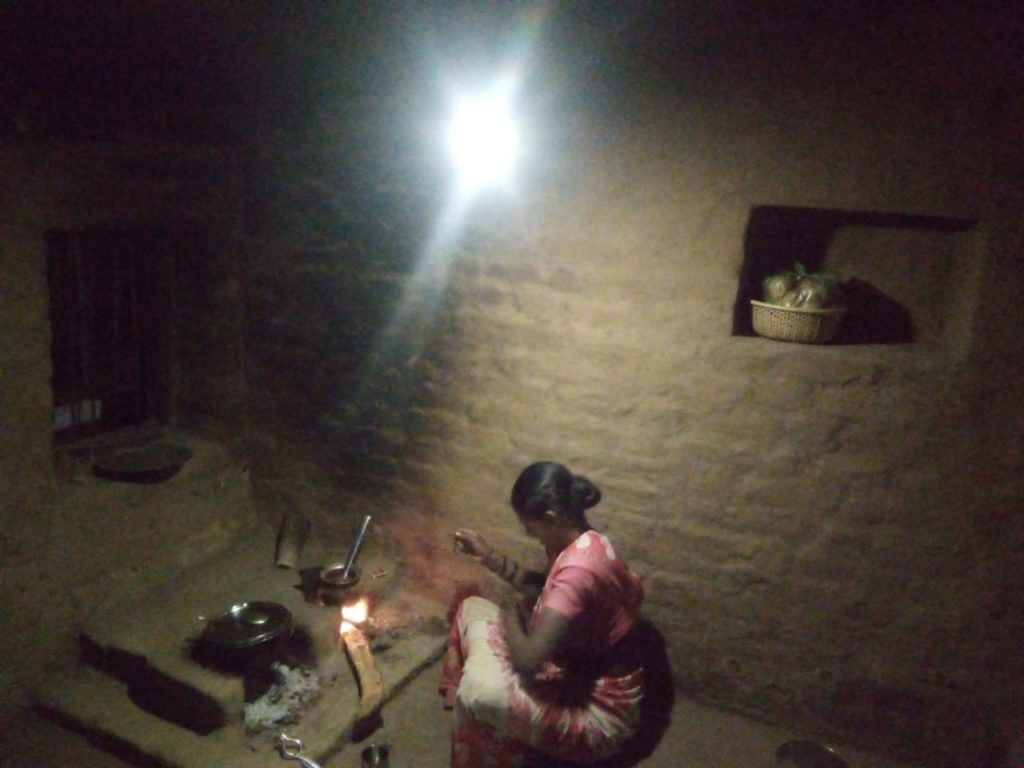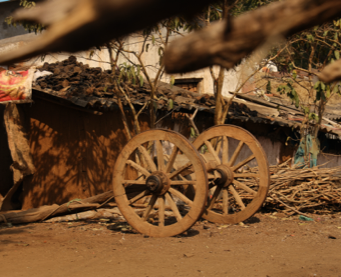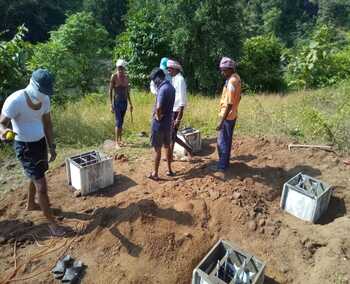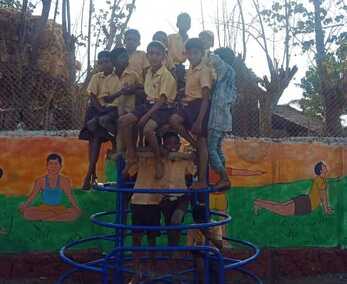In Maharashtra’s Konkan division, amidst multiple challenges the Zilla Parishad (ZP) primary school (for classes I-V) of Jambhulwadi in the Adgaon block of the Nashik district, witnessed a remarkable transformation through education. All because of a passionate and revolutionary teacher-couple
The inspiring teacher couple, Sampat Kokane and Savita Adhav, with a joint aim of ensuring that their village be known as the best for education, embarked upon their journey of making ensuring all their student’s needs were met, creating an environment conducive for learning. Kokane, from Pune, and his wife, from Ahmednagar, possess 16 and 12 years of teaching experience respectively.The journey undertaken by them was definitely not an easy one, feel the duo who have been teaching at the Jambhulwadi school for over a decade. With a need for holistic development of students strongly etched in their minds and hearts, the two of them make attempts day after day to help the children develop and grow into fine individuals through academics and other life skills.
Like in many hamlets across the state, Project Chirag has supported an Integrated Village Development project in the Adgaon main village in January 2020, which has already seen a huge transformation and zero migration. Many adjoining hamlets in the Adgaon Gram panchayat came forward with a request for similar support and Jambhulwadi was one of them, led by their visionary teachers. Members from Project Chirag were surprised when they were approached by Kokane for installation of solar lighting for the school at a time when the entire village was in darkness. A teacher using education as a tool to empower and change the destiny of this village is beyond remarkable.
The team conducted initial assessments and the findings were shocking. The assessment revealed that the hamlet’s most basic needs were not being met- continuous electricity in homes and school, scarcity of pure drinking water, school repairs, poor access to water for basic needs, much less livelihood requirements. With 85 houses and a population of 550 people, Jambhulwadi would drop into complete darkness during the monsoons.
“During the monsoon season, the mothers or other female members of the house have to go to the water source earlier to fill their pots as it not only gets dark but is also risky to travel with such heavy loads. During this time, when mothers are away, the school going kids get late for classes or the time for school is over because their mothers get late in getting back home. So who will get them ready on time for school? A lot of them come without eating breakfast, hungry. They obviously cannot sustain without food so many of them run away to homes for food and don’t return that day. Their education as a result suffers. The motivation for midday meal helps them study better,” shares Adhav.
Even COVID was at its peak, the inspired teachers decided that the classes (education) would not suffer, converting an area used for village gatherings and meets, and renovating a shed to conduct open air classes.
“During the monsoon season, the mothers or other female members of the house have to go to the water source earlier to fill their pots as it not only gets dark but is also risky to travel with such heavy loads. During this time, when mothers are away, the school going kids get late for classes or the time for school is over because their mothers get late in getting back home. So who will get them ready on time for school? A lot of them come without eating breakfast, hungry. They obviously cannot sustain without food so many of them run away to homes for food and don’t return that day. Their education as a result suffers. The motivation for midday meal helps them study better,” shares Adhav.
Even COVID was at its peak, the inspired teachers decided that the classes (education) would not suffer, converting an area used for village gatherings and meets, and renovating a shed to conduct open air classes.
They want to see children have an environment which is positive, even at their home. The teachers meet the children at school and closely understand them, their problems at home, family life and lifestyles. This approach of personal engagement helps them solve problems better. Based upon their interaction with the school children, they realised the different things required for the village, along with the problems plaguing them.
An Integrated Village Development intervention was implemented, addressing each of Jambhulwadi’s challenges, providing solar electrification at the home and school level, solar powered water lifting to make water available both for drinking and domestic use, but also to promote their livelihood of agriculture, filtration for the drinking water and community education, supported by the teachers for behavioural change of the villagers.
The teachers are one step closer to realizing their dreams for the Jambhulwadi school. “I wanted that our village should be known for and be recognised as the best in Nashik district, because earlier it was quite backward in studies and overall education. My wife and I worked tirelessly to change the way the school looks and the kind of not just academic-based learning it offers. We introduced and started offering more programs, converted it into a digital school and changed teaching methods to suit the needs of the students. With the intervention by Project Chirag, the children are also encouraged to attend classes.”
It is not the first time that we have come across teachers going beyond their call of duty, but the story of education in rural India is telling. Every village needs agents of change like Konkane and Adhav to offer education as a building block of life, but to be able to do it sustainably, is truly inspirational.
